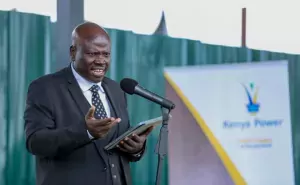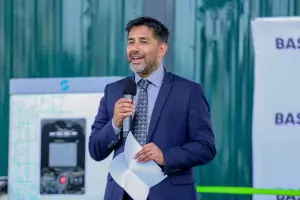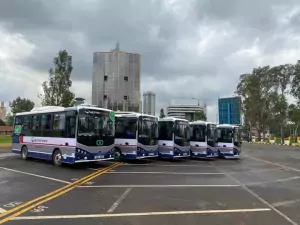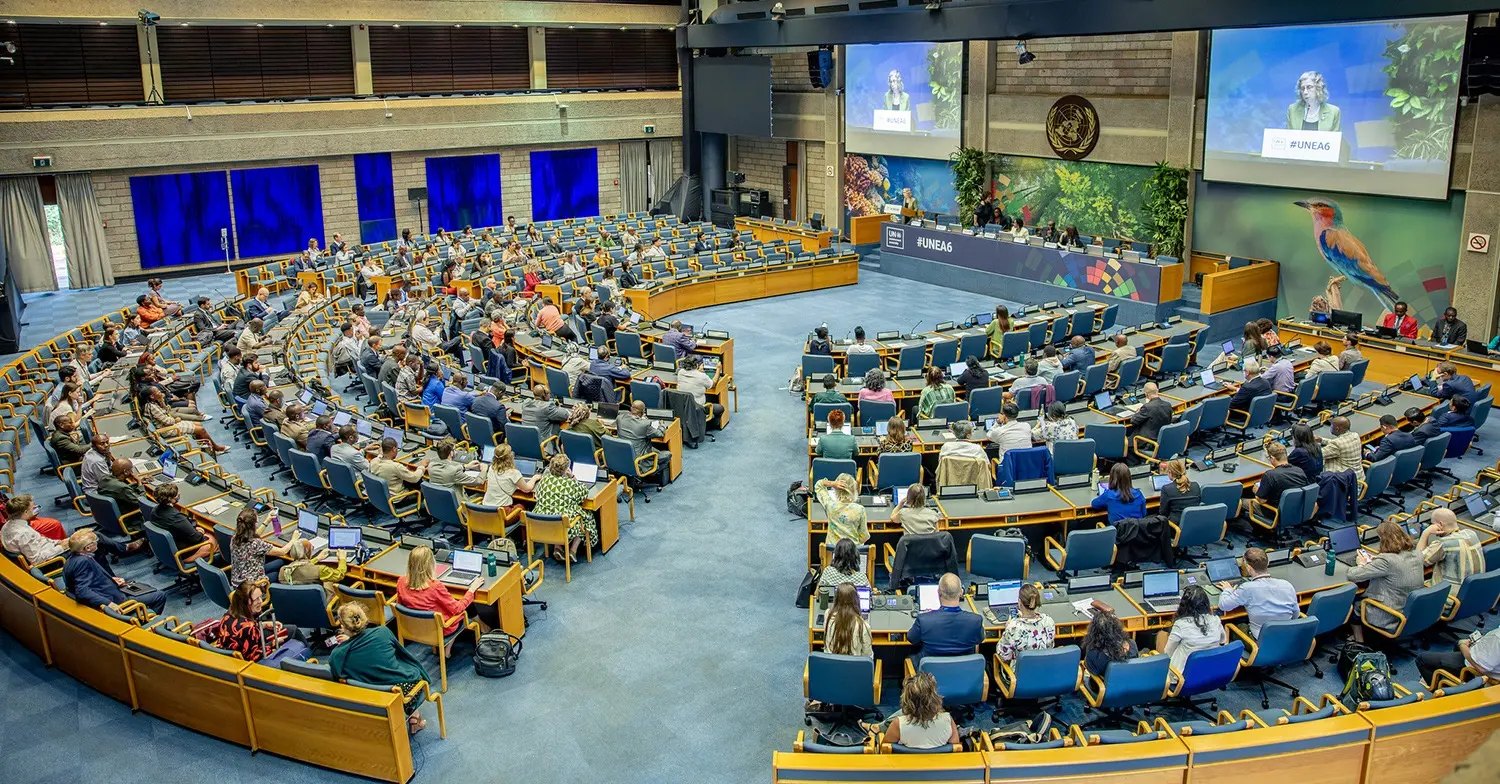
Arnold Ageta
Kenya Power has pledged to spend KSh.10 billion in the next financial year to construct new substations and power lines to strengthen electricity distribution network.
Kenya Power’s Managing Director, Dr. Joseph Siror said the investment is in line with the company’s strategy to strengthen the network for improved quality and reliability of power supply to its customers.
Speaking during the launch of BasiGo’s first public electric bus charging station, Dr. Siror added that the strategic grid investments will provide sufficient capacity for the anticipated increase in energy demand resulting from e-mobility and clean cooking as envisioned by the utility.
“In the last two years, the country has witnessed an unprecedented interest from local and international stakeholders looking into investing and developing Kenya’s e-mobility sector,’’ he said.
He added, ‘‘to adequately support e-mobility and other sectors of the economy, we will sustain investments to strengthen the grid and enhance network stability and flexibility for quality and reliable service.”
Kenya Power’s customer base has grown tremendously in the last 10 years, from 2.7 million customers to the current 9 million customers.
The uptake of electric vehicles is equally gaining momentum in the country with more than 1,000 electric vehicles currently on Kenyan roads.
“Today, our grid is robust to support electric vehicle charging, with a recent study indicating that Nairobi’s current power infrastructure is strong enough to support the switch to electric for 100 per cent of the two-wheeler vehicles in the city, and 10 per cent for other vehicles including private and commercial fleet,’’ said Dr. Siror.

The company is also keen on improving its network through strategic investments that will enhance the flexibility of the network to support this growing industry.
He added, “As the demand for electric vehicles continues to grow, Kenya Power will continue to prioritise generation from renewable energy sources such as solar, hydro, wind, biomass and geothermal.’’
Kenya has currently installed capacity of 3,321Megawatts against a peak demand of 2,132Megawatts. During off-peak, the demand drops to about 1,100 megawatts.
According to the company, this creates a good opportunity for high capacity electric vehicle charging which utilizes the available unused power.
Meanwhile, the company has been at the forefront in championing the adoption of electric vehicles.
Apart from the planned investment in grid expansion, the company has also established an e-mobility steering committee to guide the organization toward ensuring the success of the e-mobility sector.
Early this year, the company successfully made an application to Energy and petroleum Regulatory Authority (EPRA) for the introduction of an e-mobility tariff which was considered and approved in March.
BasiGo’s public electric vehicle charging station is the first beneficiary of this tariff.
BasiGo is an e-mobility start-up that is seeking to revolutionize the public transportation sector by providing public transport bus owners with a cost-effective electric alternative to diesel.

The start-up owns electric buses commonly called K6 which is a 25-seat and100 per cent electric.
According to the company’s CEO and co-founder, Jit Bhattacharya, they want to go to zero emissions and diesel free public transportation.
‘‘K6 offers 250 km of silent, emissions-free driving without burning a drop of diesel,’’ confirmed Bhattacharya.
Kenya Power intends to gradually phase out fossil fuel-powered vehicles from its fleet within the next four years. The Company has established a liaison office to work with various investors in the electric vehicles industry to support the development of the e-mobility ecosystem.



